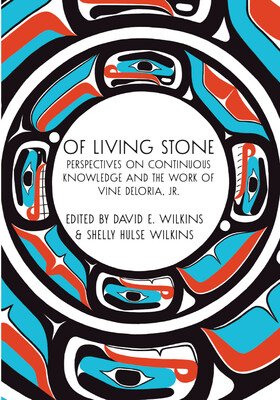Next month SWAIA’s Santa Fe Native Fashion Week[1] takes its rightful place on the fashion calendar, sharing an already prestigious sartorial “first week in May” with the Met Gala. The two events represent an important dichotomy in today’s fashion industry – the former showcasing how centuries of sustainable Indigenous knowledge and design are informing innovative current Indigenous fashion; the latter the penultimate annual fete of a mainstream fashion industry largely built on centuries of colonial exploitation of resources. You will see beautiful clothes at both events. Dazzling works of art made with the finest materials by artisans whose hearts speak through their needles and thread, and stunning people wearing them.
You will also see Indigenous people at both events; but only in Santa Fe will you find a celebration of Indigenous fashion and the opportunity to gather with designers who seek to develop sustainable fashion businesses and create value for their communities.
The Indigenous designers preparing to show at Santa Fe Native Fashion Week consistently express profound appreciation for the cultural influences that contribute to and inform their designs. Many describe learning their craft from loving matriarchs who instilled in them the importance of using it not just to better their own lives, but to build economic opportunity for their People and for future generations. Western practices now known as “sustainable fashion” emerged in the countercultures of the 1960’s and ‘70’s, became a source of consumer advocacy against corporations like Nike’s use of sweatshop labor in the 1990’s, and launched a global Fashion Revolution[2] following the collapse of Bangladesh’s Rana Plaza garment factory complex in 2013.
But Indigenous fashion predates these movements. It exists as a feature of the original triple bottom line economy; one colonization seeks to extinguish, but which has survived and thrived, nevertheless. As Carol Anne Hilton, MBA, Founder & CEO of the Indigenomics Institute, points out, “Indigenous economies are the original sharing economy, the original green economy, regenerative economy, collaborative economy, circular economy, impact economy, and the original gift economy. The indigenous economy is the original social economy .”[3]
Events like Santa Fe Native Fashion Week and the many Indigenous fashion weeks around the globe in recent years highlight a growing consumer demand for authentic Indigenous design. With increased awareness and activism making it more difficult for corporations to exploit Indigenous creators or pass off fake Native designs, the demand presents a significant opportunity for Indigenous fashion designers to activate “the ‘culture-of-origin effect,’ a term that reflects the strategic use of tribal culture as a way to increase the value of goods originating from American Indian entrepreneurs.”[4] And as Indigenous fashion designers start and grow their businesses, there is a corollary need for lawyers who understand and appreciate the ethos behind their work. Only with that understanding can an advisor and advocate help embed principles of “ethical responsibilities toward creation,”[5] community, and decolonization into negotiated transactions and business strategy. After all, “[i]t is the brave and true organization that goes above and beyond the expediency of mere legal compliance to practice what is right and just.”[6] It is the dynamic legal and business team that can help make that happen.
Take, for instance, a collaboration and licensing agreement between a large corporation and an Indigenous designer (think: PRL x Naiomi Glasses (Dine)). These contracts, which have historically been used - where a written agreement was reached at all – to legitimize the theft and exploitation of Indigenous design, offer significant opportunities to activate what Eighth Generation Founder, Louie Gong, calls the Decolonizing Partnership Model.[7] From negotiating appropriate compensation and exclusivity terms, to ensuring participation and control in the product development and marketing stages, a knowledgeable advocate can ensure an Indigenous fashion designer’s business relationships are built on the principles by which they and their communities have lived for millennia.
I, for one, can’t wait for Santa Fe. I look forward to seeing you there and, if you have a moment, hearing about your Indigenous fashion goals; your pain points; the obstacles you’ve overcome and the ones you’re facing; and, of course, your latest inspirations. Let’s talk!
Rachel Tobias is of counsel at Galanda Broadman. In addition to supporting the firm’s tribal law and Indigenous rights practice, she represents and advises Indigenous creators on an array of matters. Rachel holds a JD from the University of New Mexico School of Law and an LL.M. in Fashion Law from Fordham University School of Law.
[1] Southwestern Association for Indian Arts. https://swaianativefashion.org
[2] https://www.fashionrevolution.org
[3] Hilton, Carol Anne, MBA. Indigenomics. New Society Publishers, 2021, at 91. https://indigenomicsinstitute.com
[4] Stewart, D., J. Gladstone, A. Verbos, and M. Katragadda. 2014. “Native American Cultural Capital and Business Strategy: The Culture-of-Origin Effect.” American Indian Culture and Research Journal, 38:4, at 128.
[5] Claw, Carma M., Amy Klemm Verbos, and Grace Ann Rosile, “Business Ethics and Native American Values,” American Indian Business Principles & Practices, edited by Kennedy, Deanna M., et al., University of Washington Press, 2017, at 147.
[6] Id., at 156.
[7] https://eighthgeneration.com/pages/decolonizing-partnership-model#:~:text=A%20Decolonized%20Partnership%20requires%20compensating,capacity%20development%20for%20artists%20partners.















